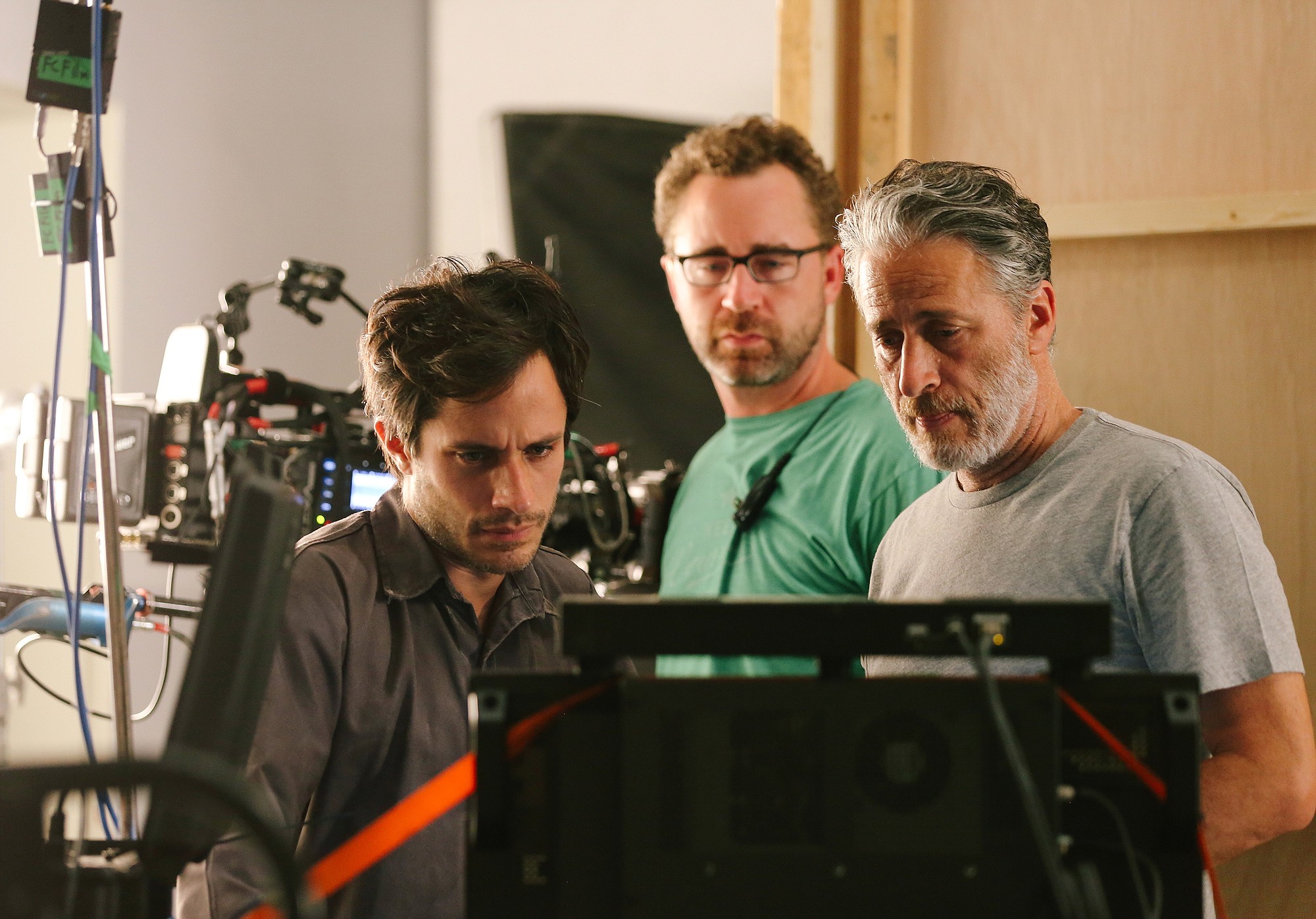Jon Stewart jokes that he and Maziar Bahari have spent so much time traveling the country together to promote Stewart’s new film, “Rosewater,” that they’ve become the equivalent of a showbiz odd couple.
Now, if they can only decide which pair they most resemble.
“It’s a lot of Walter Matthau and Jack Lemmon — two grumpy old men trying to figure out schedules and what we’re going to eat,” Stewart says during a spirited conversation at the St. Francis Hotel in San Francisco.
“But it’s also like George Michael and that other guy from Wham — Andrew Ridgeley,” insists Bahari, the subject of the film.
“OK,” Stewart concedes. “So it’s like Wham and the Sunshine Boys. On tour together.”
The two men became linked in 2009 when Stewart’s satirical news program, “The Daily Show” aired a playful interview with Bahari, a Tehran-born journalist with Canadian citizenship, just days before Iran’s hotly disputed presidential election. During the bit, “Daily Show” correspondent Jason Jones, pretending to be a dim-witted reporter, demanded to know why Iran was so evil.
Unfortunately, Iranian officials didn’t get the joke. They absurdly claimed the interview and other random “evidence” proved that Bahari was an American spy. He was arrested and thrust into solitary confinement for 118 days, during which he was repeatedly interrogated and tortured.
Embracing challenge
In a fitting postscript, Stewart took a three-month leave from “The Daily Show” last year to spend his summer in Jordan making a movie that depicts Bahari’s ordeal. “Rosewater,” Stewart’s directorial debut, recalls the reporter’s excruciating incarceration and the international publicity campaign to free him.
Motivated in part by guilt, Stewart optioned the rights to Bahari’s memoir in 2010, expecting to recruit someone to write and direct the cinematic adaptation. But after learning that the filmmakers he met with were busy with other projects, an impatient Stewart decided to embrace the challenge himself.
Some may consider “Rosewater” to be an unlikely debut for a comedian, but Bahari, points to Stewart’s passion for politics and the media.
“It’s not like you’ve got Carrot Top making ‘Schindler’s List,’ ” he says with a smile.
As for Stewart, he insists that slipping into a director’s chair didn’t feel “like an alien thing.”
“I certainly had my concerns, but I felt good about the team around me and the source material, and that Maziar was with us on set,” he says. “It was just a question of whether the alchemy would occur. Everything can line up in a very logical and rational way, but you can miss an essence that does not translate.”
Stewart’s worries weren’t truly eased until he was able to present Bahari with a rough cut of the film in an editing room back at the “Daily Show’s” New York studio.
“When I came out of the room, I saw Jon hunched in a corner, hugging his three-legged dog, Little Dipper,” Bahari recalls. “He was very nervous, but he didn’t need to be. I told him it turned out beautifully. We hugged, and it was one of the seminal moments in our relationship.”
Aided by popularity
Still, getting Bahari’s story on film wasn’t easy as Stewart worked with a lean budget and a tight schedule. One scene in particular presented issues because hundreds of extras were needed and there was no money to pay them. The solution? Put the call out on social media promising Facebook hugs from Stewart to the participants. Problem solved.
Says Bahari, “You have to understand that Jon is very much loved in the Arab world.”
One of the biggest challenges for Stewart’s raw directorial skills was trying to wrench enough energy and drama from drawn-out scenes depicting Bahari — played by Gael Garcia Bernal — being harassed by a gruff interrogator (Kim Bodnia) trying to break his will.
“The idea was to create enough tension without making it overly unpalatable to watch,” Stewart explains. “I always tried to view it in the guise of ‘Jaws.’ There’s a monster in the room, even though we may never see it. But its presence lurks.”
In formulating those scenes, Stewart made a conscious decision to dial down the element of physical torture. He was much more interested in conveying the methodical psychological breakdown that Bahari endured.
“I tried to keep in mind that we have audiences that are now accustomed to watching ’24’ and ‘Homeland’ and having physical violence done for lurid purposes,” Stewart says. “And so, if your intention isn’t to make ‘Saw 4,’ then you want the violence to have a strong impact when it occurs.”



